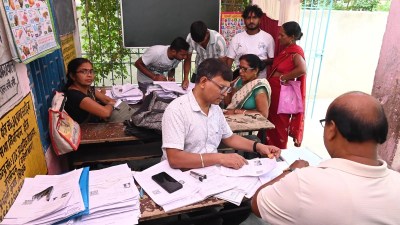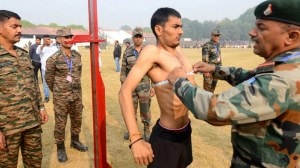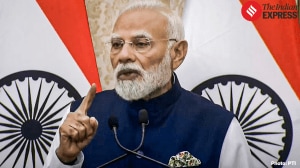Bandit — SC reserves order on release of detainees
NEW DELHI, OCT 31: Before reserving its verdict in the case relating to the release of 51 TADA detainees by the Karnataka and Tamil Nadu g...

NEW DELHI, OCT 31: Before reserving its verdict in the case relating to the release of 51 TADA detainees by the Karnataka and Tamil Nadu governments as demanded by Veerappan, the Supreme Court posed some probing questions to the Centre about its role in the ongoing hostage crisis.
The three-judge bench headed by S.P. Bharucha observed that it might be “very law-abiding” for the Centre to say that law and order was a state subject, “but what we may be seeing is the birth of an independent state, a foreign nation. As citizens and judges we are anguished. Would you say even if an independent state comes into being, you can’t help?” Bharucha’s remark were in reference to the brigand’s association with secessionist elements.
Appearing for the Centre, Additional Solicitor General Kirit Raval took the plea that it was not as if the Centre was enthusiastic about what had happened. “As and when a request (from the two states for assistance) comes, we will respond,” he said.
When Raval added that imposition of President’s Rule could not be contemplated, Bharucha said the court was not suggesting anything but there were certainly steps which the Centre could take.
Raval pointed out that if anything happened to film star Rajkumar, the two states would have to deal with more than a law and order breakdown. It would leave deep-rooted scars for the states to overcome.
But the court rejected Raval’s suggestion that the two states be directed to apply their mind to the situation and come back to the Supreme Court, saying that “our prima facie conclusion is that the two states have acted in panic and without thinking things through”.
Though Bharucha said that the bench would confine itself to the present case under which the states decided to withdraw TADA cases under Section 321 of the Criminal Procedure Code against the 51 detainess, he added: “We would be dishonest if we didn’t say at least briefly what we have seen.” This was in response to Raval’s plea that the court refrain from going into the wider question of the state’s authority under the law.
The court also refused to entertain the plea of advocate Venugopal for bail to the TADA detainees, saying that their applications have arisen “because of the complicity of the accused and the state”.



- 01
- 02
- 03
- 04
- 05




























